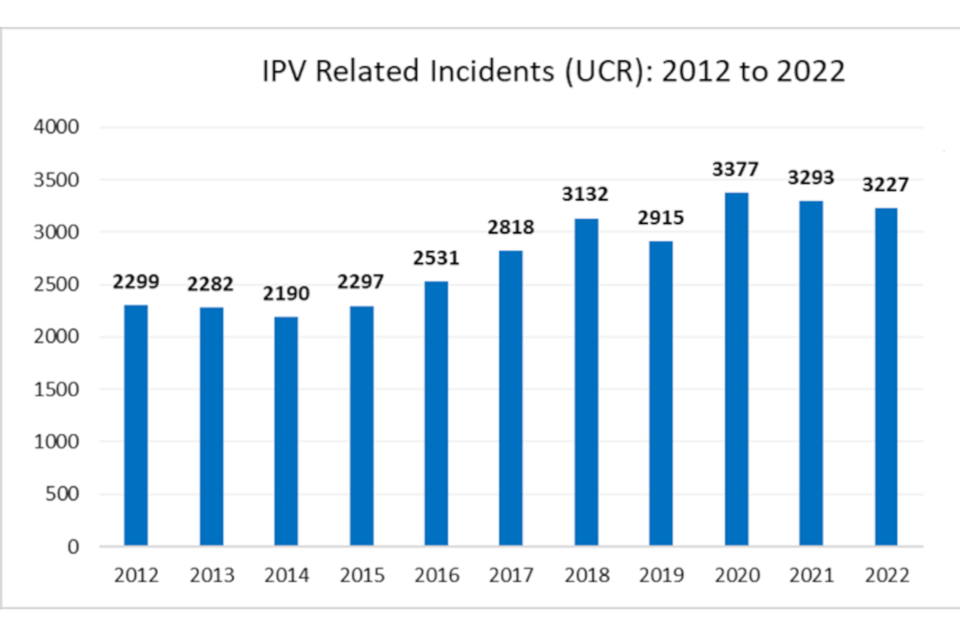More than a month after Greater Sudbury city council declared gender-based/intimate partner violence an epidemic, Mayor Paul Lefebvre asked city police what they’ve done.
The question came up during the Dec. 13 police board meeting, at which it was reported there were 187 intimate partner violence occurrences reported in November alone.
Greater Sudbury Police Service’s annual report for 2022 counted 3,227 intimate partner violence investigations that year, which resulted in 861 related charges being laid.
“We’ve never seen these numbers before,” Lefebvre said.
The number of intimate partner violence incidents have, indeed, been higher in recent years.
Between 2012 to 2022, the low point was 2014, when 2,190 incidents were recorded.
The high point was 2020, when 3,377 incidents were recorded, with the two subsequent years finding numbers drop slightly, to 3,293 in 2021 and 3,227 in 2022.
The 10-year average is 3,036 incidents, which Greater Sudbury exceeded in 2018 (3,132), and 2020, 2021 and 2022.
These annual totals reported by Statistics Canada capture all calls for service cleared with an intimate partner violence-related component/charge.
Internal police statistics capture a lower number based on information provided to the 911 emergency communications centre. The 187 incidents reported in November 2023 is one of these internal statistics, and was on the low end compared to the five-year average of 200.6 (it peaked at 238 in November 2020).
During the Dec. 13 police board meeting, Deputy Chief Natalie Hiltz said they’ve moved a sergeant from a hybrid position under specialized operations to a standalone supervisor in criminal investigations to help address cases involving intimate partner violence.
Police are also working with community partners to create “collaborative community partnerships to combat, prevent intimate partner violence, as well as provide some fulsome supports,” she said.
This includes victim supports, and “uncharted territory” into offender supports, Hiltz added.
“We need to acknowledge that some of the violent crime, especially gender-based violent crime ... we have cyclical (occurrences), where victims also become offenders and travel throughout our justice system several times.”
This concept also came up during a brief discussion of the service’s Strategic Direction for 2024-2027, which was tabled at the Dec. 13 meeting. Its centrepiece for all areas of service is, “Harm focused, human centred.”
“When you talk about victimization, it tends to presuppose that you have to wait for a crime to happen and then we come in when there’s a victim,” Chief Paul Pedersen explained, adding that offenders were often at one time victims themselves.
“If we start treating the harms and working with others to start dealing with the harms that set these people on that pathway, maybe we can get out of that trajectory rather than have them on a cycle of repeat.”
GSPS has compiled a list of community partners, resources and advice for people experiencing intimate partner violence, which can be found by clicking here.
Tyler Clarke covers city hall and political affairs for Sudbury.com.



